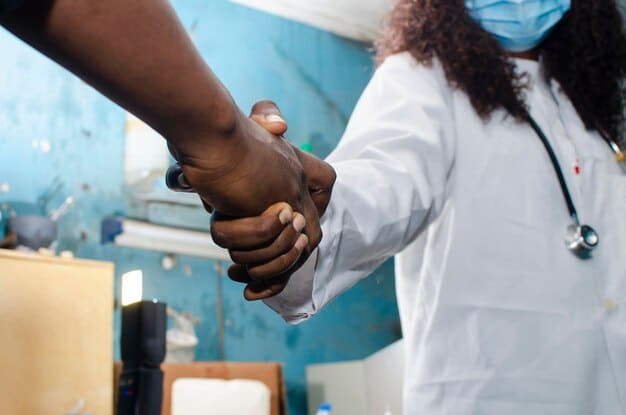Women-founded companies in African health technology soared to new heights last year, raising $52 million in funding, 31% of the total investments compared to 2022’s 1.4%, which represents over 2,000% increase, as per Salient Advisory’s latest Market Intelligence report titled 2023 Roundup: Investments in African Healthtech.
The report establishes that it is an increase over the $2 million in funding that went to women-founded companies in 2022. Year-over-year, the number of deals that went to women-led companies in comparison were 26 deals in 2022 and 33 deals last year. Funding to mixed-gender founding teams increased from 10% in 2022 to 21% last year.
“The key driver in the overall increase was the fact that we saw large funding rounds for a number of women-founded companies, including Kasha’s $21 million round which is the largest by a woman-founded company in African healthtech,” Yomi Kazeem, Engagement Manager at Salient Advisory, shares with FORBES AFRICA.
“Alongside Kasha (Kenya), Dawi Clinics (Egypt), Maisha Meds (Kenya) and Chefaa (Egypt), collectively accounted for 75% of the total funding raised by women founders in 2023.”
He considers it great to see such large funding rounds for women, explaining that it aligns with his team’s advocacy to investors and donors for intentional approaches to providing funding to women founders with the aim of bridging long-running gender financing gaps.
Loading...
For him, if the trend is sustained, the implication is that funding in African healthtech ecosystems will become more inclusive, with more “amazing” women-founded companies getting crucial early and late-stage funding to support their work. “It will also mean that these women founders will also be at the forefront of transforming health systems across the continent.”
The report also highlighted a nuanced perspective on funding dynamics within African healthtech receiving $167 million in equity, grant, and debt funding. While overall investments experienced a marginal 2% decline, the sector demonstrated resilience compared to the broader African tech ecosystem, which saw a substantial 39% drop in funding.
The African healthtech ecosystem’s number of deals rose by 17%, to a total of 145. However, the average ticket size for deals decreased by 15%, to $1.1 million, with 78% of innovators raising less than $1 million in individual deals. In total, 114 innovators received funding last year, with 23 of them receiving multiple investments.
Zillah Waminaje, Consultant at Salient Advisory, elucidating on the funding landscape, states to FORBES AFRICA, “The reality is that much of the funding deals for healthtech startups on the continent are grants, which typically have smaller ticket sizes. In 2023, 52% of all the deals we tracked were grants but this added up to just 7% of all funding, with an average ticket size of around $170,000.”
Waminaje further highlights the strategic significance of grants, emphasizing their role in validating business models and propelling growth trajectories for innovators.
“We expect to continue to see a large number of grant deals for healthtech companies, especially as grant-based programs like Investing in Innovation, which has an annual cohort size of 30 healthtech companies, deepens the important work they are doing across African healthtech ecosystems.”
The report unveiled a surge in funding activity, with a notable focus on online pharmacy solutions, primarily driven by Series B raises. Nigeria, Kenya, and Egypt emerged as focal points for investments, while francophone Africa witnessed a modest uptick, propelled by notable deals in Côte d’Ivoire.
Equity investments dominated the funding landscape, comprising 91% of total investments, with only a single debt-based investment recorded. Pre-seed and seed-stage funding collectively amounted to $36.8 million across 50 deals, and $99m was invested at Series A or higher stages across seven deals.
Last year also witnessed a doubling of merger and acquisition activity compared to 2022, with the report highlighting a burgeoning investor appetite for African health tech as over $600 million was raised in new funds.
Loading...
